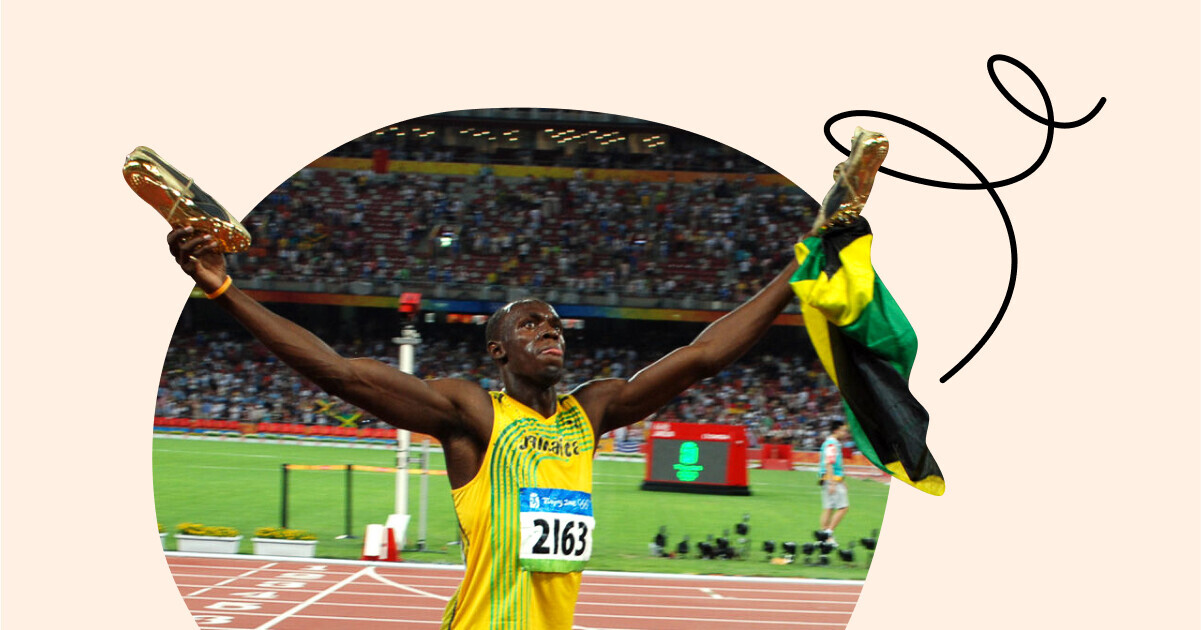⚡ Usain Bolt; eight-time gold medallist and the fastest man alive. He’s faced many opponents, but never did we think we’d see the day that HMRC would be one of them.
As it turns out, even the fastest man in the world failed to outrun HMRC’s austere tax laws… 🏃
Hold up, Usain Bolt versus WHO?
You got that right. Usain Bolt went up against HMRC. But don’t worry, it wasn’t physical. Perhaps we’d be telling a different story had Bolt been a professional boxer instead of a sprinter. 🫣
It all started back in 2010 when Bolt ditched the Aviva London Grand Prix, instead deciding to compete in Paris.
Bolt was also invited to an athletic event in London in 2012, which he declined. According to his management, ‘his tax liability in the UK could exceed his appearance fee.’
But what did they mean?
HMRC would’ve taken a chunk out of the £100,000 payment Bolt was due to receive for this appearance. But on top of this, HMRC demanded a portion of Bolt’s international sponsorships and endorsements which included a £12.5million deal with Puma.
Basically, it just wasn’t worth Bolt’s time taking part in events hosted in the UK.
How are athletes taxed in the UK?
As a UK resident athlete, your UK and worldwide income will be subject to the regular income tax rates.
For example: an English football player who plays in the Premier League but also has rental property overseas will pay tax on both forms of income. Premier League players are usually very, very high-earners, so naturally, they’ll fall into the 45% tax bracket.
As a non-UK resident ‘visiting athlete’ (like Bolt), you’ll also be taxed on your:
- Appearances in the UK
- UK prize winnings
- Any global endorsements
- Any global sponsorships
Wait, how does that make sense?
The logic here is that worldwide earnings may be directly related to an event which took place in the UK, and therefore should be subject to UK tax.
Yeah, we know. Pretty tight.
Your tax bill is then worked out by dividing the number of days you compete in the UK by the number of days you compete elsewhere.
In the great book of arithmetic, this equation is called ‘HMRC maths’. 🤓
HMRC further pushed Bolt’s buttons when they announced in the 2012 UK budget that practise days would also be included in this figure. This meant that if Bolt arrived a few days before the competition to touch up on his victory pose, he’d be taxed on this too.
What about the double tax treaty?
A double tax treaty is an agreement between the UK and another country that usually prevents you from paying tax in two countries when working abroad. Problem solved, right?
Well, actually, although the UK has a double-taxation agreement with plenty of countries, many of these treaties give HMRC a green light to triple-tax athletes on:
- UK income
- Endorsement income
- Sponsorship income
Sorry Bolt!
So what was the result of this feud?
Bolt turned down a few London appearances. In fact, we may not have seen Bolt take part in the 2012 London Olympics at all had HMRC not announced a tax break for competitors.
But after the 2012 London games, HMRC was back to business as usual. Today, visiting athletes are still taxed the same in the UK.
Of course, when the British media caught wind of this drama, British political and cultural magazine, New Statesman weighed in their opinion on Bolt’s beef with HMRC:
But Bolt isn’t the only athlete to comment on this issue. Tennis star Rafael Nadal blasted the UK tax system, saying it makes it ‘difficult to play in the UK‘.
And that folks, is Bolt vs Britain tax laws. 🥊



